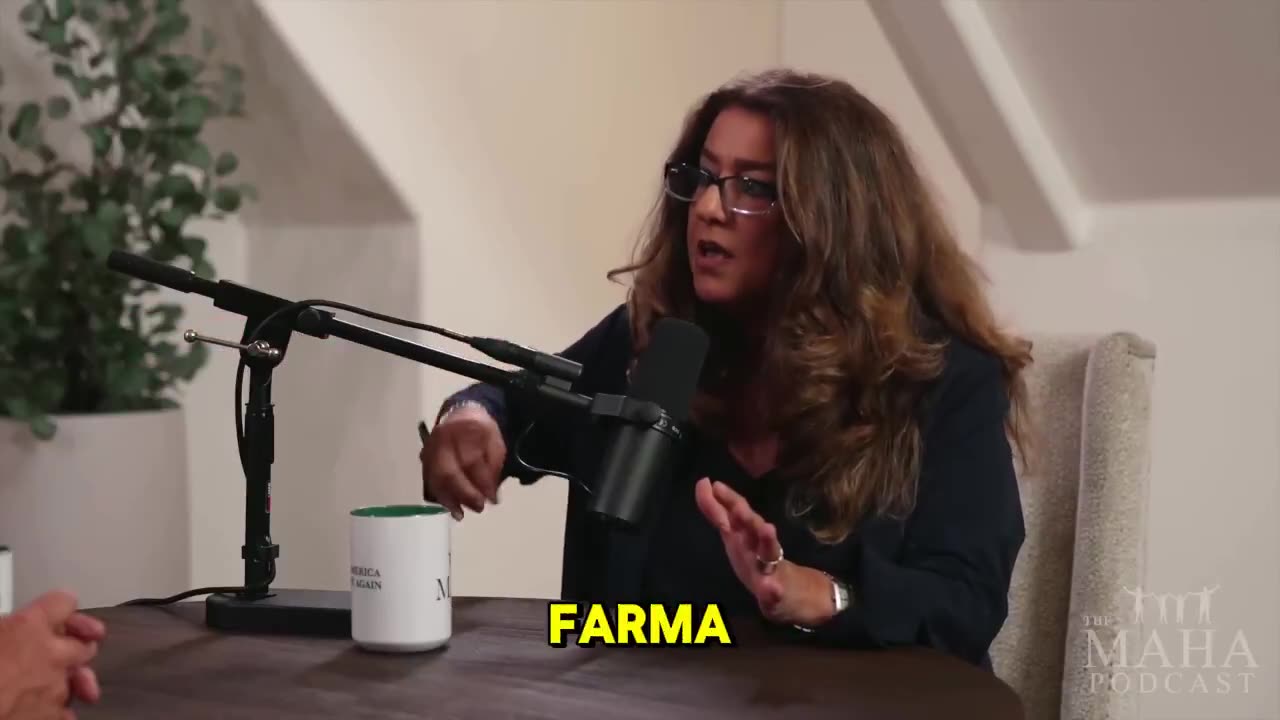Premium Only Content

Dr. Sabine Hazan Unveils Gut-Immunity Link: How Vaccines Mimic Nature’s Defense System - Del Bigtree
FULL PODCAST: BIFIDO BUST: YOGURTS DIRTY SECRET https://rumble.com/v6rnr4p-dr.-sabine-hazan-yogurts-and-probiotics-dont-contain-the-gut-healthy-strain.html?mref=1bxo9j&mc=69gy3
In a captivating discussion, Dr. Sabine Hazan, a leading gastroenterologist and microbiome expert, unravels the profound connection between gut health, immunity, and the science behind vaccines.
With her pioneering research into the human microbiome, Dr. Hazan reveals how the gut serves as the foundation of our immune system and how vaccines, at their core, replicate nature’s time-tested method of building immunity.
Dr. Hazan emphasizes a critical truth: "Immunity is in your gut." A diverse microbiome, teeming with beneficial bacteria like Bifidobacterium and Lactobacillus, equips the body to fend off pathogens.
Historically, humans encountered a rich variety of microbes through their environment, naturally training their immune systems. For instance, contracting measles in childhood would introduce the virus, granting lifelong immunity—even against deadlier strains. This process, Dr. Hazan explains, is precisely what vaccines aim to emulate in a controlled, safer way.
So, what is a vaccine? Dr. Hazan breaks it down: "Vaccines are a brand—a way to say we’re prophylactically protecting against a bug." The mechanism is elegantly simple: deliver a small, harmless fragment of a pathogen to the body, allowing it to recognize and build defenses without causing illness.
She draws a vivid analogy to allergy treatments, like desensitization for peanut allergies. "When you visit an allergist for a peanut allergy, they give you a tiny piece of peanut, gradually increasing the dose until your body no longer reacts," she says.
Vaccines operate on the same principle, introducing a microbial fragment to train the immune system for future battles. Yet, Dr. Hazan challenges us to consider the modern context. In the past, populations boasted greater microbial diversity, making them more resilient. Today, her research paints a stark picture: among 1,000 people studied, only 5% had adequate Bifidobacterium, and just 1% had sufficient Lactobacillus.
This microbial depletion leaves many—especially the immunosuppressed—vulnerable to infections. "The population right now is not as healthy," she notes, highlighting why vaccines are critical for those with compromised microbiomes.
Dr. Hazan also critiques the pharmaceutical industry’s role. She argues that what occurs naturally—gaining immunity through pathogen exposure—has been commercialized. "The pharmaceutical industry saw an opportunity to profit from something that was happening naturally," she asserts.
Their claim? Vaccines offer a safer way to introduce pathogens, minimizing risks compared to natural infections. While this may benefit vulnerable populations, Dr. Hazan urges us to question how we balance natural immunity, gut health, and medical interventions.
Through her groundbreaking work, Dr. Hazan calls for a holistic approach to immunity—one that prioritizes restoring microbial diversity through diet and lifestyle while leveraging vaccines to protect those at risk. Her insights spark a vital conversation about nurturing our gut to strengthen our body’s defenses and rethinking the role of vaccines in a world with dwindling microbial richness.
-
 1:04:08
1:04:08
Asher Press
2 days agoHow Wikipedia Turned Into an ‘Engine of Defamation’ | Co-Founder Larry Sanger
382 -
 1:55:03
1:55:03
We Like Shooting
16 hours agoWe Like Shooting 633 (Gun Podcast)
106 -
 1:32:29
1:32:29
Glenn Greenwald
8 hours agoNo Kings Protests: A Partisan Pro-DNC Circus; The Trump Admin's Escalating Strikes on "Drug Boats" and Militarization of the Caribbean | SYSTEM UPDATE #534
17.4K70 -
 3:49:31
3:49:31
SOLTEKGG
5 hours ago🔴LIVE - BATTLEFIELD 6 W/ SOLTEK
-
 3:46:40
3:46:40
VapinGamers
4 hours agoBattlefield 6 - Gettin My Body Ready for BR and Other Funzies with Friends - !rumbot !music
-
 41:43
41:43
MattMorseTV
6 hours ago🔴It’s ACTUALLY HAPPENING…🔴
3.65K101 -
 4:34:30
4:34:30
Putther
4 hours ago🔴LIL WILLY RETURNS TO GTA RP
-
 LIVE
LIVE
Reidboyy
10 hours agoCamo King Grinds 100% Completion for Battlefield 6 *SECRET* Mastery Camo (All Badges + Camos 100%)
33 watching -
 12:21:32
12:21:32
LFA TV
1 day agoLIVE & BREAKING NEWS! | MONDAY 10/20/25
163K32 -
 2:18:02
2:18:02
LIVE WITH CHRIS'WORLD
9 hours agoLIVE WITH CHRIS’WORLD - Not a King BUT Still YOUR President!
26